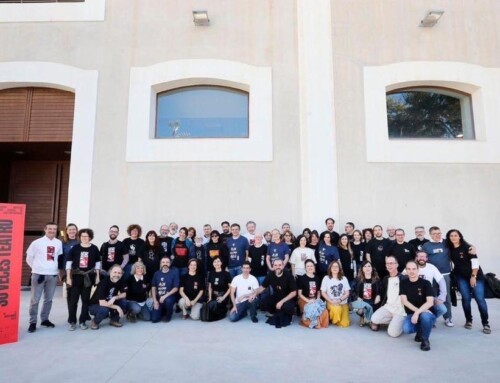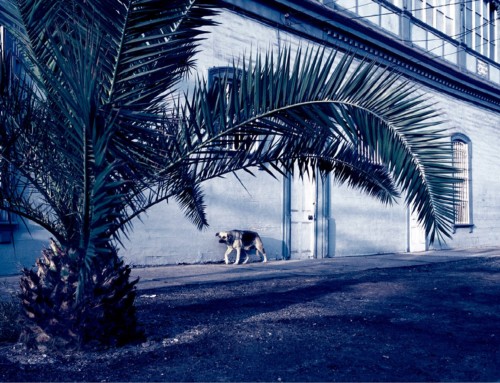In November 2016 I was invited by the Sociedad General de Autores de España (SGAE, the Spanish writers guild), the Asociación de Autores de Teatro (AAT, the Spanish playwrights association), and Acción Cultural de España (ACE, the Spanish arts and culture funding body) to the ‘Encuentro de dramaturgos con traductores’. This annual and almost unique event invites a small number of translators from around the world to share their experiences of the role of Spanish theatre in their own countries, and crucially, to meet a number of contemporary Spanish playwrights one to one. The hope, of course, is that these meetings will result in more Spanish plays being translated and staged or published throughout the world.
This was my second attendance at the event and, alongside translation colleagues from Romania, Hungary, Italy, Germany and France, I met with 12 playwrights from across the spectrum of Spanish theatre-making.
I would love, of course, to translate all of them, and I certainly hope to translate some of their work, but I am but one translator. Luckily, though, I know I am not the only Spanish-to-English theatre translator, so I hope some of my colleagues in the UK, the US or beyond may read the following short summaries with interest and be moved to contact some of the authors and read their plays.
The playwrights are presented in the order in which I met them, (which amounts to no particular order). I was only able to read one of each of their plays in preparation for the event: there are many more where these came from. Where they have an entry, I have placed a link through to Contexto Teatral, an excellent, curated new web initiative designed to give a platform to emerging Spanish playwrights, which I suggest colleagues visit. This is a great complimentary resource to the Spanish Association of Playwrights play and writer directory which also has an entry for each of its members.
Pilar Almansa trained in London and has worked already in the London theatre scene. Her play NEOCRACY (NEOCRACIA) imagines a not-too-distant future where social media has been integrated into the mechanisms of the state and terrorism moves from the streets to all-powerful data centres. Set in Frankfurt, Tokyo and Berlin, the play explores our continuing and increasing attachment to social media and its implications for our political, personal and sexual lives in an increasingly globalised world. See also Pilar’s website.
Jesús Campos is a veteran of Spanish playwrighting with a long and successful trajectory dating back decades and widely produced. His recent play AND THE HOUSE GREW (Y LA CASA CRECÍA) sees a young couple accept an offer they can’t refuse – an opulent, palatial home at a peppercorn rent – only for the house literally to grow so large as to be out of control. Nevertheless, the cheap rent in today’s climate is too much of a pull for them to leave, even when things turn nasty with the landlady’s businessman son.
Madrid-based Argentine playwright and director Heidi Steinhardt contemplates the complexities of family in her play THE INESTIMABLE BROTHER (EL INESTIMABLE HERMANO). As two orphaned, adult siblings mourn the loss of their last living parent, the sister struggles to deal with a brutal realisation: that she would rather not have a brother at all. A darkly comic two-hander, the play tackles oft-avoided taboos such as the obligation of family and feasibility of unconditional love borne of duty.
Laura Rubio Galletero tackles no less pressing subjects such as suicide and the still-unequal treatment of women in THE GLASS CEILING (TECHO DE CRISTAL), imagining booze-fuelled conversations at the Ritz between Sylvia Plath and Anne Sexton. When not tormenting the Ritz’s long-suffering waiter in New York, Sylvia is in London grappling with life as wife and spar to Ted Hughes.
Eclectic playwright Carlos Contreras documents the life of Romany boxer Johann Trollmann in 1920s Germany in RUKELI. This real-life story charts the struggle for recognition of a sportsman at the top of his game but within a society that increasingly threatens him.
Juan García Larrondo’s long and well-established playwriting trajectory includes CELESTE FLORA, a compelling, convincing imagining of a psychiatrist’s attempts in the early Twentieth Century to analyse the perpetrator of an appalling series of child murders.
Andalusian playwright Gracia Morales explores coercion and the blurring line between public and private in EL CASO GARAY (THE GARAY CASE). In an uncannily close future, a couple agrees to take part in a medical trial to increase their chances of conceiving, only for the husband to become addicted to the treatment despite – or perhaps because of – its side effects. Morales also runs her own company, Remiendo Teatro, based in Granada.
Established playwright Alfonso Zurro’s recent play ALONE WITH MARYLIN (A SOLAS CON MARYLIN) takes the modern-day icon of Marylin Monroe as the inspiration for a free-flowing text exploring contemporary mythology. Mixing the legend of Marylin with the classical tale of Medea, the play’s brutal ending follows a series of open-ended and intriguing vignettes.
Born in Uruguay but long established in Spain, Denise Despeyroux featured recently in a series of European plays at London’s Gate Theatre. Her plays explore spirituality and the ghosts of both the living and the dead. In the comedy THE DRAMATIC ORIGINS OF SPIRAL GALAXIES (LOS DRAMÁTICOS ORÍGENES DE LAS GALAXIAS ESPIRALES), an identical twin is forced to imitate her sister in front of her unsuspecting family, only to find out by doing so what her mother and aunt really think of her.
Juan Luis Mira is a veteran playwright whose eclectic output includes MAKING-UP CORPSES (MAQUILLANDO CADÁVARES), in which Michelangelo is hired to beautify the body of the recently deceased Pope. In this claustrophobic historical reimagining, the writer contemplates the meaning and possibility of artistic integrity faced with financial, political and physical compulsion.
Víctor Sánchez explores post-colonialism, globalisation, personal crisis and 21st-century angst in CUZCO. On a long-awaited holiday in Peru, a couple finds that travelling to the other side of the world brings enlightenment, but not necessarily of the sort they hoped. Trapped between the familiar and the other, a holiday intended to bring them closes risks doing just the opposite.
Juan Mairena’s recent move into playwriting was greeted with success with SOW (CERDA), a sometimes screwball comedy set in a convent of eccentric nuns. Despite its sometimes outrageously comic tone, this play broaches the dark and difficult subject of stolen children and devastation of the mothers who were forced to part with them.
It was an honour and a pleasure to be invited by the SGAE, AAT and ACE to attend this event and I hope that this summary will play its part in helping to spread the word about Spanish playwriting.
I must also thank my fellow translators David Ferré, Fanziska Muche, Simone Trecca, Lazslo Scholz and Luminita Voina for their company, generosity and insight.
¡Hasta la próxima!


Leave A Comment
You must be logged in to post a comment.